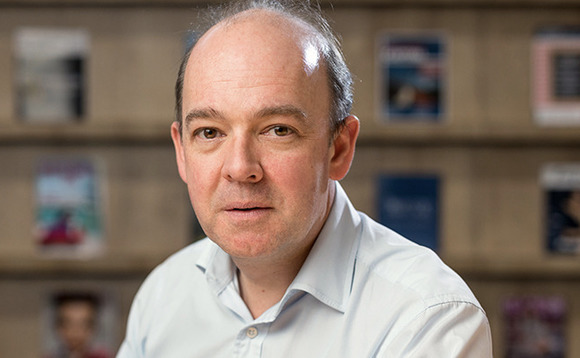
GP Profile: FPE Capital

Following an intensive period of oversight over portfolio companies, FPE Capital is now gearing up to begin making investments again in the technology sector, moving into exclusivity on a deal. By Katharine Hidalgo
Since the outbreak of Covid-19 and the subsequent turmoil, lower-mid-market technology investor FPE Capital has moved to a forward-looking approach, aiming to do more deals. Managing partner David Barbour says: "We've gone into exclusivity on another deal in the technology sector. It's a definite beneficiary of the digital uptake that has been driven by the pandemic."
The firm injects £5-20m in equity capital into UK-based SMEs with enterprise values of £20-50m and turnovers of £5-25m for influential equity stakes.
FPE focused on its portfolio for the first three to four weeks following the onset of the coronavirus crisis, though Barbour told Unquote the portfolio was in good health. "We've made very selective use of the furlough scheme and no use of CBILS [the UK government's business loan scheme]. We've not needed to provide any remedial financing either," he says.
FPE is currently investing from its second-generation fund, which closed on £100m in October 2017, 19 months after the firm officially launched as an independent investor. It previously managed funds on behalf of high-net-worth individuals such as entrepreneurs and business owners, as well as the private equity arm of multi-family office Stonehage Fleming Family & Partners, which is now an LP in FPE funds.
FPE Fund II has a mandate for 9-12 investments, though Barbour expects the fund will have 10-11 portfolio companies at the end of its investment period. Currently, there are six assets in FPE Fund II and two remaining in its predecessor.
Assets in FPE II include Intragen, a cybersecurity services consultancy and systems integrator, and Kallik, a developer of labelling and artwork management software.
The firm has also been actively making bolt-ons in 2020. It supported its portfolio company Optimity in its acquisition of managed IT service Pebble IT in March 2020. The acquisition was made using a mix of new equity from FPE funds and debt provided by Clydesdale.
Barbour says: "Our portfolio is in very good shape – several have benefited from the new work pattern requirements for digital solutions and none are facing material issues. There's no question Covid-19 is accelerating digital uptake."
Barbour thinks FPE portfolio companies are particularly resilient, partly due to the sector the firm is focused on. "In almost every case, we work with companies that supply critical applications that businesses really need, and they need them more now they're working remotely," he says. "These include cybersecurity, testing and assessment software."
High demand
The technology sector continues to play a large part in buyout activity in the UK & Ireland with buyout volume in the sector growing from 41 deals in 2018 to 48 deals in 2019 and making up 21% of all deals in the region last year, according to Unquote Data.
Market participants tell Unquote that technology or technology-enabled companies can demand entry multiples of 2x more than counterparts in other sectors. Technology buyouts made up almost a third of all deal value in the UK & Ireland in 2019, up from 4% in 2015.
While the firm is considering fundraising, FPE is not likely to push a fundraise forward in 2020. "We might fundraise in 2021, as the market is relatively robust at this moment for the segment," Barbour says.
Rede Partners acted as placement agent for FPE Fund II, though it is not clear if the firm will use the adviser for subsequent funds.
In addition to family office Stonehage Fleming, existing LPs in FPE funds include Access Capital, BVK Private Equity, Adams Street Partners, F&C Asset Management, Paul Hamlyn Foundation and University of Virginia Investment Management Company.
"We're talking to LPs regularly," Barbour says. "They've been doing a lot less travelling and have been more available to chat. We've been doing monthly updates and talking between those meetings also."
FPE is also considering exits. Says Barbour: "We aren't expecting to make any exits soon, but this could be a good opportunity to realise. We've sold three Fund I companies to US investors and we see that region as being very attractive for software exits."
The firm sold its holding in Ikon Science, a provider of software and analysis services to the upstream oil and gas sector, to Boston-based private equity firm Great Hill Partners in 2018. In addition, FPE sold its stake in digital payments software developer Creditcall to PE-backed, US-based trade buyer Network Merchants, also in 2018.
Key People
David Barbour is joint managing partner and a co-founder of FPE Capital. He focuses on the telecommunications and financial services sectors, and also leads the firm's investor relations and fundraising activities. Prior to moving into private equity, Barbour worked as a corporate finance adviser at Fleming.
Henry Sallitt is joint managing partner and a co-founder of FPE Capital. Prior to founding the firm, he was a director of Quester, a growth capital investor in the UK.
Latest News
Stonehage Fleming raises USD 130m for largest fund to date, eyes 2024 programme
Sponsor acquired the public software group in July 2017 via the same-year vintage Partners Group Global Value 2017
Stonehage Fleming raises USD 130m for largest fund to date, eyes 2024 programme
Czech Republic-headquartered family office is targeting DACH and CEE region deals
Stonehage Fleming raises USD 130m for largest fund to date, eyes 2024 programme
Ex-Rocket Internet leader Bettina Curtze joins Swiss VC firm as partner and CFO
Stonehage Fleming raises USD 130m for largest fund to date, eyes 2024 programme
Estonia-registered VC could bolster LP base with fresh capital from funds-of-funds or pension funds









